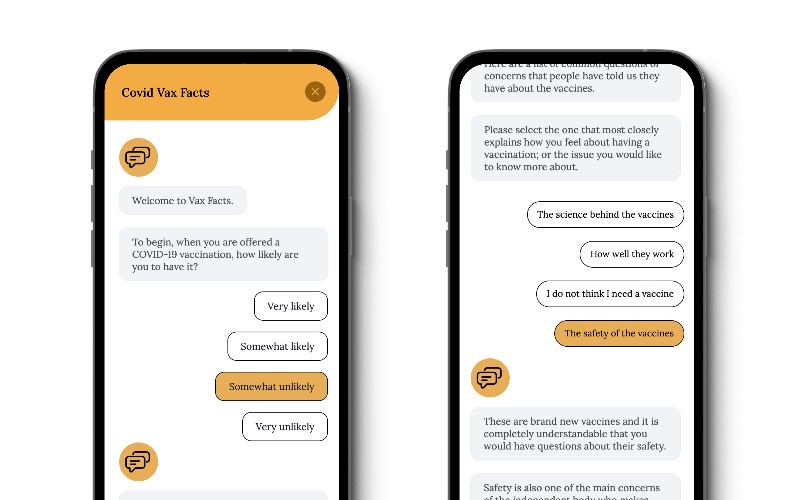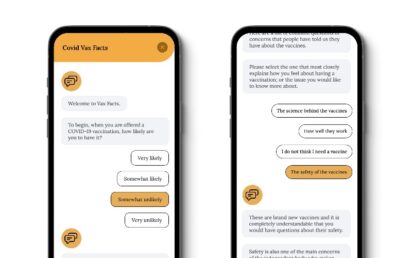A chatbot has launched to fight the spread of misinformation about COVID-19 vaccines.
Creative technology agency Rehab and the University of Nottingham have developed COVID Vax Facts, a conversational interface aimed at tackling hesitancy and concerns around their safety.
Experts suggest 90% of the UK population must receive the vaccine for the nation to achieve herd immunity, but figures from a University of Nottingham study indicate 1 in 5 people remain uncertain about going ahead.
Rehab says celebrities posting about receiving the vaccine isn’t enough of a solution. Enter the chatbot, which converses with users in an objective, non-judgemental manner, talking them through what is known and what isn’t, with scientific evidence presented in an accessible way.
At the end of the conversation, participants are asked if they feel more or less confident in their initial opinion on the vaccine.
The chatbot also collects anonymous data on the responses, which will allow the university’s research team to spot the influence of factors like age, ethnic group and social class. This could inform vital interventions in the coming months.
https://businesscloud.co.uk/31m-funding-for-remote-care-management-platform-current-health/
The project comes out of a three-year partnership between Rehab and the University of Nottingham focusing on digital interventions.
“Digital technology, and social media in particular, contribute to the vaccine hesitancy issue, so it’s vital that we consider how we can make technology a part of the solution and work for society – rather than against it,” said Rehab CEO Rob Bennett.
“The potential of conversational interfaces has advanced tremendously in recent years, and this project hopes to spotlight how pivotal they can be in fighting on the right side of important battles.
“Rehab is always looking at the endless possibilities of how technology can help people, and we’re very pleased to bring this project to the public.”
https://businesscloud.co.uk/plastic-antibodies-may-improve-accuracy-of-rapid-covid-19-tests/
Kavita Vedhara, Professor of Health Psychology, Faculty of Medicine & Health Sciences commented: “There is a lot of information and misinformation about COVID-19 vaccines and it can be hard to know where to look and who to trust.
“We have tried to develop a ‘one-stop shop’ that will provide information about the most common issues raised by the UK public. Our aim is to give people the information that will help them make an informed choice.
“Having a COVID-19 vaccine is a choice and everyone deserves a chance to have access to the information that will help them make that choice.”
CoronavirusCOVID-19

